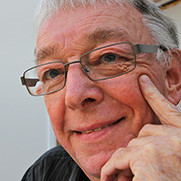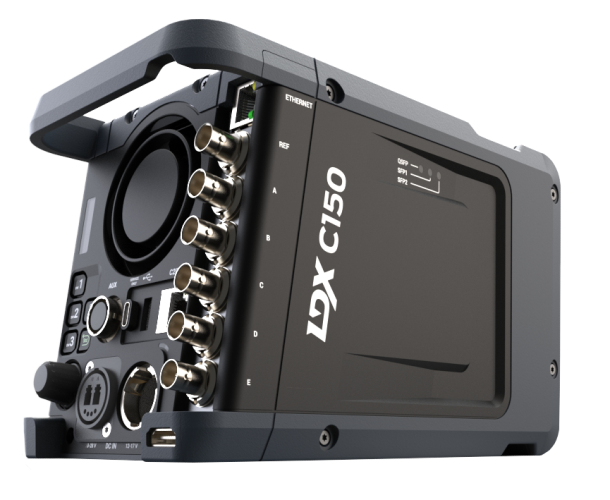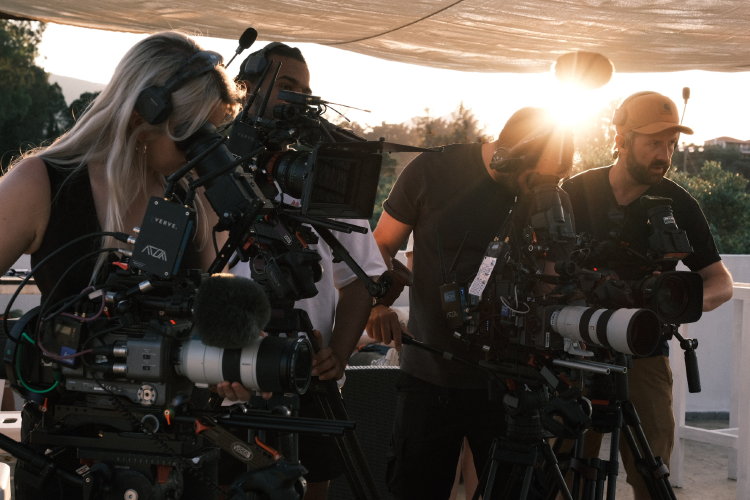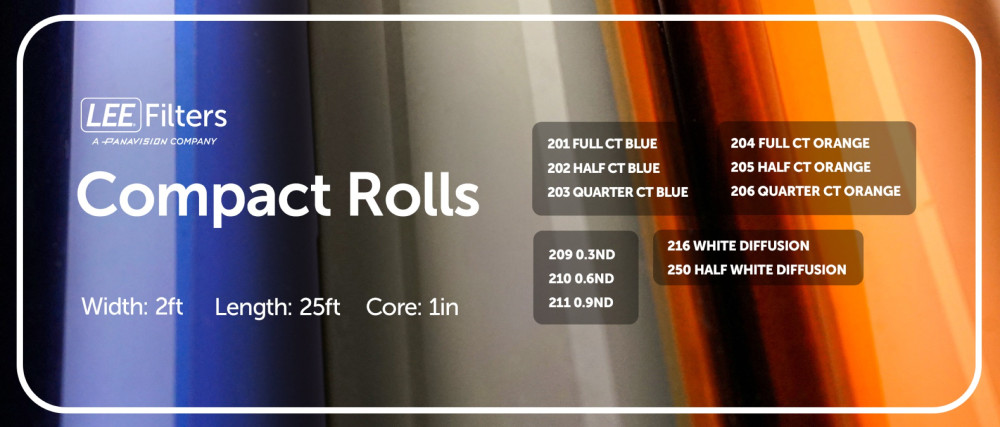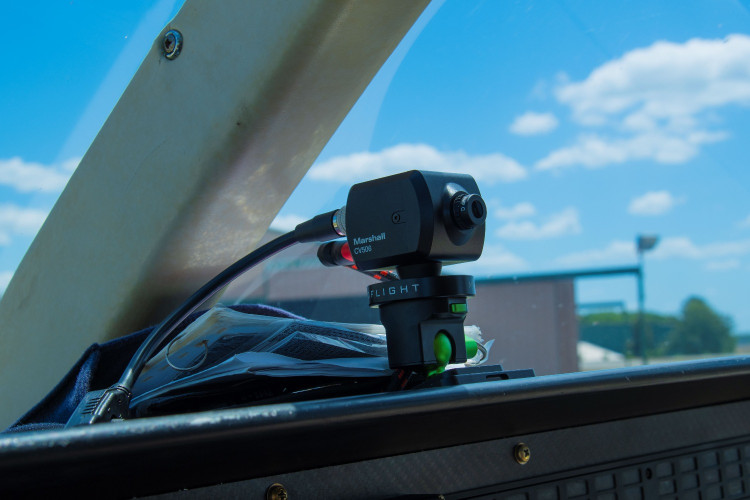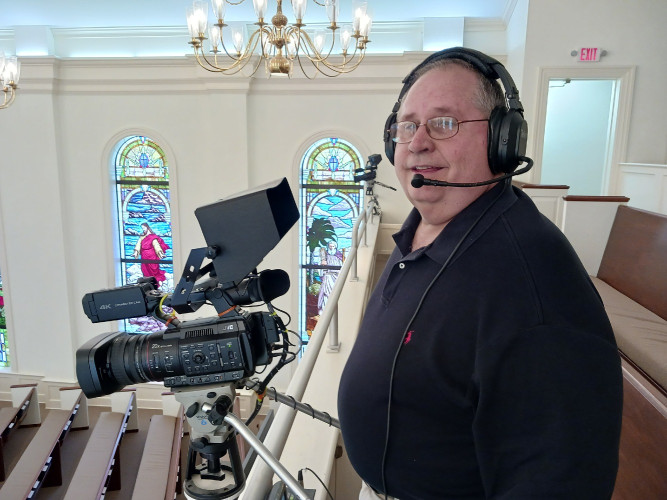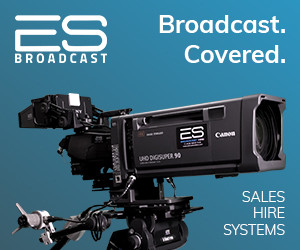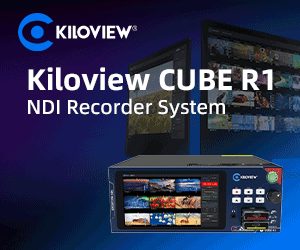by Peter Leverick Issue 112 - April 2016
In Part 1 (issue 110) I addressed the practical skills required by Camera Operators aspiring to enter the Broadcast TV market. A good camera operator also needs to have good artistic senses and abilities. Like practical skills this is something that is acquired through training and practice. As with all training and practice the trainee needs to have access to a good trainer and the time to observe & practice. Trainer input alone does not make a good cameraman; a Trainer should give the student an understanding of what is required through explanation and demonstration, from that point on, it is down to the student to watch high end Broadcast output and practice/practice/practice what he or she sees and has learnt.
This in turn means that the Tutor should possess these skills and the teaching establishment must have all the professional kit, otherwise the training can lapse into theory, and sometimes non-contextual theory.
It must be said that these days\' a fair amount of Broadcast output itself falls very short of the standards required, and therefore a fair amount of discernment is required when selecting your Continuing Personal Development viewing. As I mentioned in Part 1, many of the programme makers (Directors, Cameramen, Editors, even Sound Recordists) disregard what they should have been taught in the name of \'art\' or fashion, or in the case of a BBC flagship Documentary series that went out a couple of weeks ago, made by people who were taught correctly, deliberately misframed looking room in order to make the programme \'look different\'. Then there is the constantly fidgeting pit lane walk & talk camera on certain race tracks, the constantly crabbing wide shot on studio discussions & interviews, not to mention the endless (pun intended!) unresolved jimmy jib developments - this list is also endless.
How can we be discerning with our viewing and training input when so many of the examples on offer are misleading? The answer is to have a thorough understanding of the basic requirements of the viewer, because that is the first and possibly the most important artistic skill that the Camera Operator will need. Most of the other artistic skills flow from this one.
Let me put all this into context. There is a saying about lighting for drama, that the lighting should not be visible, that is to say that when lighting a scene the result should look natural, not \'lit\'. Whereas lighting for most music based Light Entertainment shows is intentionally noticeable. The same is true for Camerawork; on the whole it should not be noticeable in itself, apart from some genres such as music videos and the like.
This distills down to the simple fact that good camerawork, as with good lighting, compliments the performance or events playing out in front of the camera, it does not go against the grain of the performance, it is deeply enmeshed with it, to the extent that the camerawork is a contributing performance in it\'s own right.
Just as two actors are relating and reacting to each other\'s performance, so too should the camera. The camera can embrace expectation, tension and relaxation, it can convey height, distance and speed, it can emphasize mood, light, darkness, shade, depth, claustrophobia, fear, and surprise... the list is almost endless.
It has to be said that many of the camera skills needed to embrace the above list involve breaking, or at least bending the textbook rules of camerawork, so you can see why a knowledge of the rules is important, but more importantly, an awareness of how these rules, when applied, are received, or felt, by the viewer.
If the viewer feels the performance of the camera, it follows that the Camera Operator must be completely in tune with the feelings imparted by his own performance. If not he is not communicating fully with the viewer. It\'s akin to driving a car with your eyes shut. You have no idea where you are taking your passengers, (neither do they) and will most certainly be giving them a bumpy ride! It\'s no excuse saying I wanted it to be \'different\' or \'exciting\' or \'arty\', unless it helps the viewer share the experience.
So, a good operator has learnt to feel his shots, he or she does this by being a viewer whilst operating rather than just an operator.
As with editing, a cut or transition should be made when the viewer needs (wants) it; a camera should show what the viewer needs in order to understand what is going on. Well that\'s all good textbook stuff, but with film making and TV drama, what the screenwriter or director wants the viewer to see or feel, may not be what the viewer would naturally go for. Here the film makers are either denying the viewer of information thus making them feel uncomfortable or setting them up for a surprise, or giving them more information or false information, setting them up for anticipation, real or false.
This requires teamwork, between the whole crew, from scriptwriter through director, cameraman to editor. A good camera operator must be able to interpret the script, and then interpret the actors\' interpretation of the script, producing editable rushes for the editor.
The process of script interpretation should be the deciding factor in making major decisions, like whether to go handheld, tripod or dolly etc. Framing (how much looking room? how much headroom?) On a tracking shot, how fast, when to start and when to stop, on a crabbing shot, not just how fast but where to pivot and where & when to transfer the pivot. With drama and music, you need to feel the shot, not just see it.
All of this applies to Documentaries and News coverage as well, even though there may be less acting and singing in these genres, there are still performances and action taking place in front of the camera, the Camera Operator should always put him or herself in the position of a first time viewer, and feel the performances in front and behind the camera.



